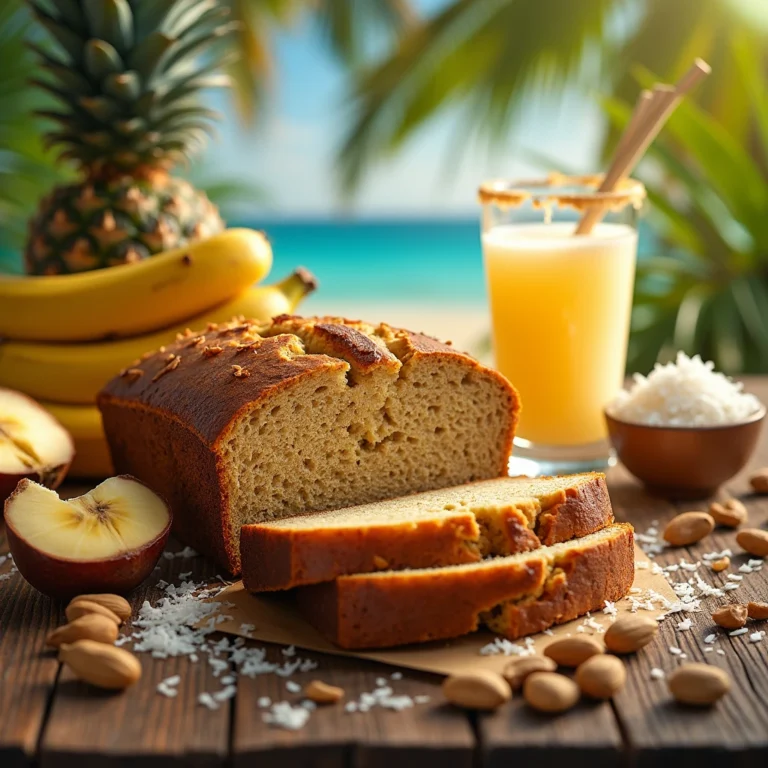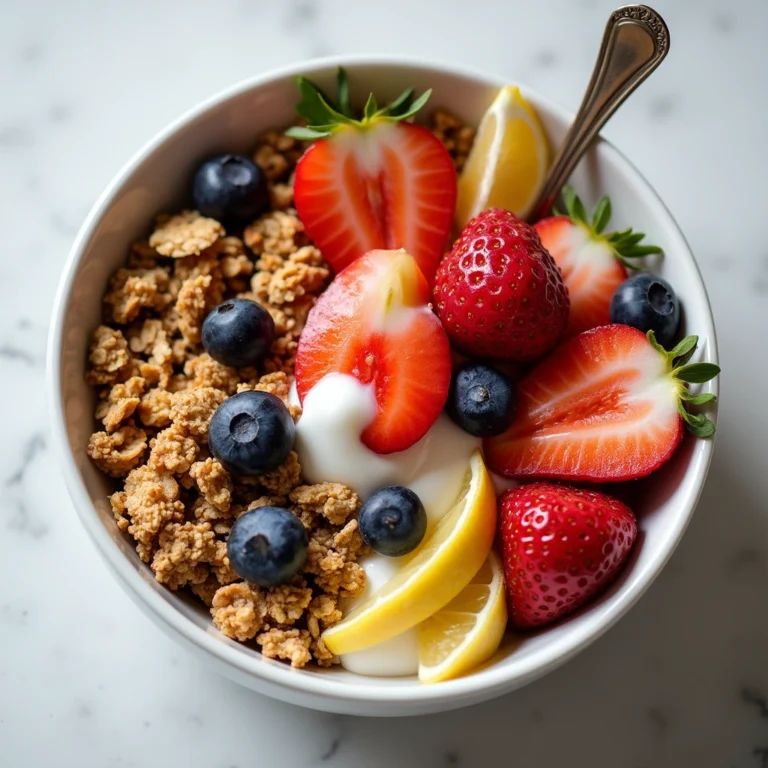Cottage Cheese and Eggs: The Ultimate High-Protein Breakfast
Cottage cheese and eggs are the ultimate high-protein combo! Discover their health benefits, delicious recipes, and easy ways to add them to your diet.
How to make Cottage Cheese and Eggs Scramble
Making a Cottage Cheese and Eggs Scramble is simple, quick, and requires only a handful of ingredients. This high-protein dish is perfect for a healthy breakfast or a light meal any time of the day. Here’s what you’ll need:
1. Basic Ingredients
- Eggs (2-3 large eggs) – A rich source of protein and essential nutrients.
- Cottage Cheese (¼ cup) – Adds creaminess and extra protein.
- Butter or Olive Oil (1 tsp) – For cooking and adding healthy fats.
- Salt (to taste) – Enhances flavor.
- Black Pepper (¼ tsp) – Adds a mild spice and depth of flavor.
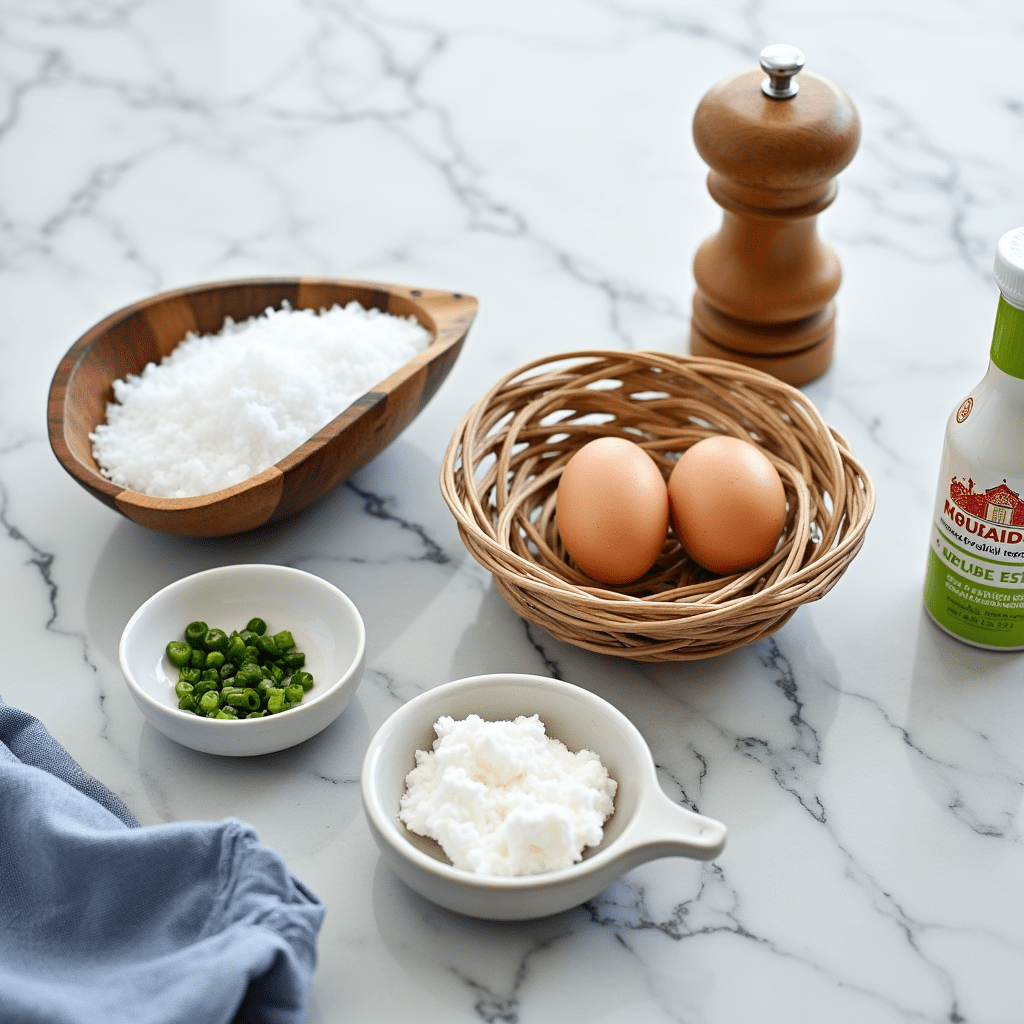
- 2. Optional Add-ins for Extra Flavor & Nutrition
Want to enhance your scramble? Here are some delicious optional ingredients:
- Vegetables (Add Fiber and Micronutrients)
- Spinach (½ cup, chopped) – Rich in iron and vitamins.
- Tomatoes (¼ cup, diced) – Adds freshness and natural sweetness.
- Bell Peppers (¼ cup, diced) – Provides crunch and vitamin C.
- Mushrooms (¼ cup, sliced) – Boosts umami flavor and antioxidants.
- Shredded Cheddar or Mozzarella (¼ cup) – For a cheesier texture.
- Greek Yogurt (1 tbsp) – Adds a tangy, creamy texture.
- Herbs & Seasonings for More Flavor
- Garlic Powder (¼ tsp) – Enhances taste.
- Paprika (¼ tsp) – Adds a mild smoky flavor.
- Fresh Herbs (chopped, e.g., parsley, chives, or basil) – Brightens up the dish.
- Protein Boosters
- Cooked Turkey or Chicken (¼ cup, shredded) – Extra lean protein.
- Smoked Salmon (2 tbsp, chopped) – A gourmet twist with omega-3 benefits.
Steps to Make Cottage Cheese and Eggs Scramble
Follow these simple steps to make it creamy, high-protein in just 10 minutes!
Step 1: Gather Ingredients
- 3 large eggs
- ¼ cup cottage cheese (full-fat or low-fat)
- 1 teaspoon butter or olive oil
- Salt and black pepper (to taste)
- ¼ teaspoon garlic powder (optional)
- ¼ teaspoon paprika (optional)
- ¼ cup spinach, chopped (optional)
- 2 tablespoons shredded cheddar cheese (optional)
2: Whisk the Eggs
- In a mixing bowl, whisk the eggs until well combined.
- Stir in the cottage cheese, salt, pepper, and any optional seasonings.
3: Preheat the Pan
- Heat a non-stick skillet over medium-low heat and add butter or olive oil.
- Let it melt evenly to coat the pan.
4: Cook the Eggs

- Pour the egg and cottage cheese mixture into the skillet.
- Let it sit for a few seconds before stirring gently with a spatula.
5: Scramble Gently
- Cook the eggs slowly, stirring occasionally to keep them fluffy and prevent overcooking.
- If adding spinach or shredded cheese, mix them in when the eggs are halfway cooked.
6: Remove from Heat
- Once the eggs are fully cooked but still soft, remove them from the heat.
- The residual heat will continue cooking the eggs slightly.
7: Serve and Enjoy
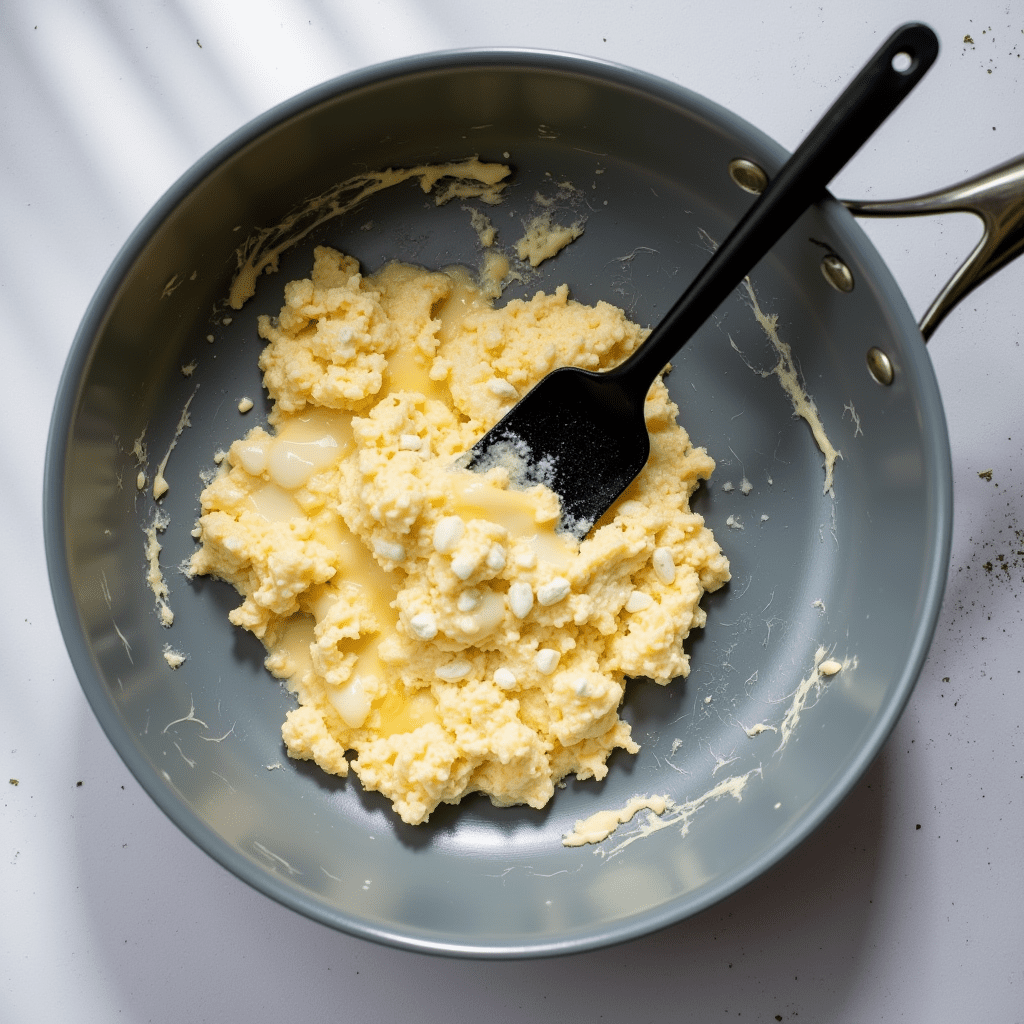
- Serve immediately on its own, with whole wheat toast, or in a breakfast wrap.
- Optionally, garnish with fresh herbs, avocado slices, or hot sauce for extra flavor.
Would you like variations of this recipe, such as a spicy version or a meal prep-friendly option? Let me know!
Now that you have your ingredients ready, let’s move on to how to make the perfect Cottage Cheese and Eggs Scramble!
Try pairing this dish with a crunchy snack like Crunchy Cottage Cheese Parmesan Chips for a balanced meal.
Health Benefits of Eating Cottage Cheese and Eggs
Cottage cheese and eggs are not only delicious but also packed with essential nutrients that support overall health. From muscle growth to brain function, these two powerhouse ingredients offer numerous benefits. Let’s take a closer look at how including them in your diet can positively impact your body and well-being.

1. Supports Muscle Growth and Recovery
Protein is the building block of muscles, and both ingredients provide a rich source of high-quality protein.
- Complete and Slow-Digesting Protein: Eggs contain all nine essential amino acids, while cottage cheese is a slow-digesting protein (casein), helping with muscle repair and preventing muscle breakdown.
- Ideal Post-Workout Meal: Eating cottage cheese and eggs after exercise provides the necessary amino acids for muscle recovery and growth.
- Boosts Strength and Performance: The leucine content in eggs and cottage cheese plays a crucial role in muscle protein synthesis, promoting strength and endurance.
A close-up of a cottage cheese omelet on a white plate with fresh tomatoes and spinach on the side.
2. Promotes Weight Loss and Satiety
Eating foods high in protein and low in carbohydrates, like cottage cheese and eggs, can help with weight loss by keeping you full longer.
- Increases Fullness: Protein takes longer to digest, reducing hunger and preventing overeating.
- Boosts Metabolism: Studies show that high-protein diets increase thermogenesis, meaning your body burns more calories digesting food.
- Reduces Late-Night Cravings: Cottage cheese, being a slow-digesting protein, is an excellent evening snack that helps curb hunger until morning.
3. Improves Bone Health
Both cottage cheese and eggs contain essential nutrients that support strong bones and prevent osteoporosis.
- Rich in Calcium and Phosphorus: Cottage cheese is packed with calcium and phosphorus, two minerals crucial for bone density and strength.
- Vitamin D from Eggs: Vitamin D helps the body absorb calcium effectively, reducing the risk of fractures and bone-related diseases.
- Supports Joint Health: The protein content in eggs and cottage cheese aids in collagen production, which is essential for maintaining healthy joints.
4. Enhances Brain Function and Mental Health
What you eat directly impacts brain function, and Bothe provide essential nutrients that improve cognitive performance.
- Choline for Brain Development: Eggs are one of the best sources of choline, a nutrient essential for memory, mood regulation, and cognitive function.
- B Vitamins for Energy and Focus: Cottage cheese contains B vitamins (B12, riboflavin, and folate), which help improve brain function and reduce the risk of mental fatigue.
- Reduces Stress and Anxiety: The high protein content helps regulate neurotransmitters like serotonin, promoting a balanced mood and reducing stress.
5. Supports Heart Health
Contrary to past myths, eating eggs and cottage cheese in moderation can actually benefit heart health.
- Balanced Cholesterol Levels: Eggs contain both HDL (“good” cholesterol) and LDL (“bad” cholesterol), but research suggests that eggs improve the HDL-to-LDL ratio, supporting heart health.
- Rich in Omega-3s: Omega-3-enriched eggs can help reduce inflammation and lower the risk of heart disease.
- Lowers Blood Pressure: The potassium and calcium content in cottage cheese helps regulate blood pressure and prevent hypertension.
6. Aids in Gut Health and Digestion
A healthy gut is key to overall wellness, and they can contribute to better digestion.
- Probiotics in Cottage Cheese: Some varieties contain live probiotic cultures that promote gut health and improve digestion.
- Easy-to-Digest Proteins: Cottage cheese and eggs are gentle on the stomach, making them ideal for people with digestive issues.
- Low in Lactose: Cottage cheese is lower in lactose than milk, making it easier for those with mild lactose intolerance to digest.
7. Helps Maintain Healthy Skin and Hair
Your diet plays a significant role in maintaining glowing skin and strong hair, and they provide the nutrients necessary for beauty from within.

- Protein for Hair Growth: Hair is primarily made of keratin, a protein that eggs and cottage cheese help produce.
- Vitamin A and E for Skin Health: Eggs contain vitamin A, which supports skin cell regeneration, and vitamin E, which protects against free radical damage.
- Collagen Production: Cottage cheese has amino acids that support collagen production, reducing wrinkles and improving skin elasticity.
Looking for a high-protein snack? Check out How to Make a High-Protein Cottage Cheese Chips in Air Fryer.
Nutritional Benefits of Cottage Cheese and Eggs
Cottage cheese and eggs are two of the most nutrient-dense foods available. They are packed with high-quality protein, essential vitamins, and minerals that support muscle growth, weight management, brain function, and overall health. In this section, we’ll break down the impressive nutritional benefits of these two powerhouse ingredients.
1. High-Quality Protein Source
Protein is essential for muscle growth, repair, and overall body function. Both ingredients are excellent sources of complete, high-quality protein.
- Eggs: Each large egg contains about 6–7 grams of protein, including all nine essential amino acids that the body cannot produce on its own.
- Cottage Cheese: A half-cup serving of cottage cheese provides around 14 grams of protein, making it one of the best dairy-based protein sources.
- Fast and Slow Digestion: Eggs are quickly absorbed, providing an immediate protein boost, while cottage cheese contains casein protein, which digests slowly and provides sustained amino acid release for muscle recovery.
Protein Comparison (Per 100g Serving)
| Food | Protein (g) | Type of Protein |
|---|---|---|
| Eggs | 13g | Fast-digesting (albumin) |
| Cottage Cheese | 11g | Slow-digesting (casein) |
| Greek Yogurt | 10g | Moderate digestion |
| Chicken Breast | 27g | Fast-digesting (animal protein) |
2. Rich in Essential Vitamins and Minerals
Both cottage cheese and eggs contain a wide range of vitamins and minerals essential for overall health.
Key Nutrients in Eggs:
- Vitamin B12: Essential for nerve function and red blood cell production.
- Choline: Supports brain health, memory, and metabolism.
- Vitamin D: Helps with calcium absorption and bone health.
- Iron: Crucial for oxygen transport in the blood.
- Selenium: A powerful antioxidant that boosts immune function.
Key Nutrients in Cottage Cheese:
- Calcium: Supports strong bones and teeth.
- Phosphorus: Works with calcium to maintain bone strength.
- Riboflavin (Vitamin B2): Helps convert food into energy.
- Probiotics (in some varieties): Promote gut health and digestion.
Vitamin & Mineral Comparison (Per 100g Serving)
| Nutrient | Eggs | Cottage Cheese | Benefits |
|---|---|---|---|
| Calcium | 50mg | 83mg | Bone strength |
| Vitamin D | 2.5mcg | 0.2mcg | Immune support, calcium absorption |
| Choline | 147mg | 40mg | Brain function, liver health |
| Riboflavin | 0.3mg | 0.2mg | Energy production, skin health |
| Selenium | 15.4mcg | 9.7mcg | Antioxidant, immune support |
3. Low in Carbohydrates and Weight Loss-Friendly
If you’re following a low-carb, keto, or high-protein diet, cottage cheese and eggs are excellent choices.
- Eggs contain virtually zero carbohydrates, making them ideal for keto and low-carb diets.
- Cottage cheese is low in carbs (about 3-6g per serving), making it a good option for people looking to manage their blood sugar levels.
- High protein content helps reduce cravings and control appetite, supporting weight loss efforts.
4. Heart-Healthy Fats and Cholesterol Benefits
There has been a lot of debate about cholesterol in eggs, but recent studies have shown that moderate egg consumption does not increase heart disease risk for most people.
Healthy Fats
- Egg yolks contain omega-3 fatty acids, which help reduce inflammation and support brain and heart health.
- Cottage cheese has a balanced fat profile, with both saturated and unsaturated fats that support metabolism.
- Moderation is key—eating eggs in balance with other nutrient-dense foods can support cardiovascular health.
Cholesterol Myth Debunked
- Dietary cholesterol in eggs has little effect on blood cholesterol levels for most individuals.
- Studies suggest eggs may improve the balance of good (HDL) and bad (LDL) cholesterol.
- Cottage cheese is naturally low in cholesterol and provides healthy fats that support heart function.
5. Supports Gut Health and Digestion
Cottage cheese contains probiotics (if labeled as such) that can aid in digestion and promote a healthy gut microbiome.
- Good for lactose-sensitive individuals: Cottage cheese is lower in lactose than milk, making it easier to digest for some people.
- Eggs are easy on digestion and do not irritate the stomach, making them a good protein source for those with digestive issues.
6. Promotes Healthy Skin, Hair, and Nails
- Protein in eggs and cottage cheese is essential for collagen production, which keeps skin smooth and hair strong.
- Vitamin A in eggs helps with skin cell regeneration and reduces signs of aging.
- Zinc and selenium in cottage cheese and eggs protect against oxidative damage that can lead to premature aging.
“Many people follow low-carb or keto diets by choosing full-fat cottage cheese, which packs around 11–12 g of protein and only 3 g of carbs per half-cup—just enough to support ketosis without derailing your macros” (Healthline breaks down its keto compatibility)
How to Incorporate Cottage Cheese and Eggs into Your Diet
Cottage cheese and eggs are incredibly versatile and can be easily added to your meals throughout the day. Whether you prefer a hearty breakfast, a protein-packed lunch, or a satisfying snack, these two ingredients can be used in countless delicious and nutritious ways.
Breakfast Ideas
Starting your day with those two ingredients ensures you get a high-protein meal that keeps you full and energized.
- Cottage Cheese Scrambled Eggs – Whisk eggs with a spoonful of cottage cheese for a creamy and fluffy scramble.
- Protein-Packed Omelet – Fill an omelet with cottage cheese, spinach, and tomatoes for a nutrient-rich start to your day.
- Breakfast Bowl – Layer cottage cheese with scrambled eggs, avocado, and roasted sweet potatoes for a balanced meal.
- Keto Cottage Cheese Pancakes – Blend eggs and cottage cheese with almond flour to make high-protein pancakes.
- Egg and Cottage Cheese Toast – Spread cottage cheese on whole wheat toast and top with a fried or poached egg.
Lunch and Dinner Options
This two mean ingredients not just for breakfast! You can incorporate them into savory dishes for a protein boost.
- Egg Salad with Cottage Cheese – Mix hard-boiled eggs with cottage cheese, mustard, and herbs for a creamy and healthy egg salad.
- Cottage Cheese and Egg Wrap – Use a whole grain or low-carb tortilla filled with scrambled eggs, cottage cheese, and veggies for a quick meal.
- Baked Cottage Cheese Frittata – Whisk eggs and cottage cheese with your favorite vegetables and bake for a protein-rich meal.
- Stuffed Peppers – Fill bell peppers with a mixture of cottage cheese, eggs, and lean ground turkey, then bake until tender.
- Cottage Cheese Pasta Sauce – Blend them two, garlic, and Parmesan to create a creamy, high-protein sauce for pasta.
Snack Ideas
Healthy snacking is easy with both of ingredients , whether you need a quick bite or something to keep you full between meals.
- Hard-Boiled Eggs with Cottage Cheese – Enjoy a hard-boiled egg with a spoonful of cottage cheese for a simple, protein-rich snack.
- Cottage Cheese and Egg Muffins – Bake eggs, cottage cheese, and chopped vegetables in a muffin tin for a grab-and-go snack.
- Deviled Eggs with Cottage Cheese – Replace mayonnaise with cottage cheese for a healthier twist on deviled eggs.
- Cottage Cheese Dip – Blend cottage cheese with herbs and serve it as a dip for raw veggies or whole-grain crackers.
- Egg and Cottage Cheese Smoothie – Blend cottage cheese, a cooked egg, banana, and cinnamon for a protein-packed smoothie.
Pre- and Post-Workout Meals
If you’re looking for a high-protein meal to fuel your workouts or aid recovery, They are excellent choices.
- Pre-Workout: Scrambled Eggs and Cottage Cheese Bowl – Eat a small bowl of cottage cheese with a scrambled egg and a slice of toast for sustained energy.
- Post-Workout: Protein Shake with Cottage Cheese and Eggs – Blend cottage cheese, a boiled egg, and a banana for a muscle-repairing drink.
- Post-Workout Omelet – Enjoy an omelet filled with cottage cheese and lean meats to rebuild muscle.
Bedtime Snacks for Muscle Recovery
Since cottage cheese contains slow-digesting casein protein, it’s a great nighttime snack to support overnight muscle repair.
- Cottage Cheese with Chopped Nuts – Add almonds or walnuts to cottage cheese for a crunchy, protein-rich snack.
- Cottage Cheese and Egg Bowl – Mix cottage cheese with a chopped boiled egg and season with black pepper for a filling late-night snack.
- Cottage Cheese and Peanut Butter – Swirl peanut butter into cottage cheese for a tasty, muscle-repairing snack before bed.
By incorporating cottage cheese and eggs into your daily meals, you can enjoy their amazing nutritional benefits in a variety of delicious ways. Whether you’re looking for quick breakfast options, high-protein snacks, or post-workout meals, these two ingredients offer endless possibilities for a healthier diet. Would you like some specific meal prep ideas using those ingredients ?
For more baked cottage cheese ideas, check out Oven-Baked Cottage Cheese Chips – The Best Crispy Snack.
FAQs About Cottage Cheese and Eggs
1. Are cottage cheese and eggs good for weight loss?
Yes! Both cottage cheese and eggs are high in protein, which helps keep you full longer, reducing hunger and preventing overeating. They are also low in carbohydrates, making them ideal for weight loss diets like keto and low-carb meal plans.
2. Can I eat cottage cheese and eggs every day?
Absolutely! Cottage cheese and eggs provide essential nutrients such as protein, healthy fats, vitamins, and minerals. However, it’s best to balance them with a variety of other foods to ensure a well-rounded diet.
3. Are cottage cheese and eggs keto-friendly?
Yes, both cottage cheese and eggs are low in carbs and high in healthy fats and protein, making them perfect for a ketogenic diet. Just be mindful of the type of cottage cheese you choose, as some brands may have added sugars.
4. What’s the best time to eat cottage cheese and eggs?
They can be eaten at any time of the day. They make a great breakfast, a satisfying snack, a protein-packed lunch, or a muscle-repairing dinner. Cottage cheese, in particular, is excellent as a bedtime snack because its slow-digesting protein helps with overnight muscle recovery.
5. Can I eat cottage cheese and eggs before bed?
Yes! Cottage cheese contains casein protein, which digests slowly and provides a steady release of amino acids overnight, making it a great bedtime snack for muscle repair and growth. Adding a boiled egg can increase the protein content even further.
6. Are eggs better raw or cooked with cottage cheese?
It is always recommended to cook eggs before consuming them. Raw eggs pose a risk of salmonella infection, whereas cooked eggs are safe and easier for the body to digest. Cottage cheese can be eaten raw or cooked in dishes like scrambled eggs or omelets.
7. Can I substitute Greek yogurt for cottage cheese in recipes?
Yes, Greek yogurt is a great alternative to cottage cheese if you prefer a smoother texture. However, cottage cheese has a slightly higher protein content and lower sugar compared to Greek yogurt, making it a better option for those focusing on high-protein, low-carb diets.
Conclusion
Cottage cheese and eggs are a powerful combination that offers exceptional nutritional benefits. Packed with high-quality protein, essential vitamins, and minerals, they support muscle growth, weight loss, heart health, and overall well-being. Whether you enjoy them scrambled for breakfast, baked in muffins, or blended into smoothies, there are endless ways to incorporate these two superfoods into your diet.
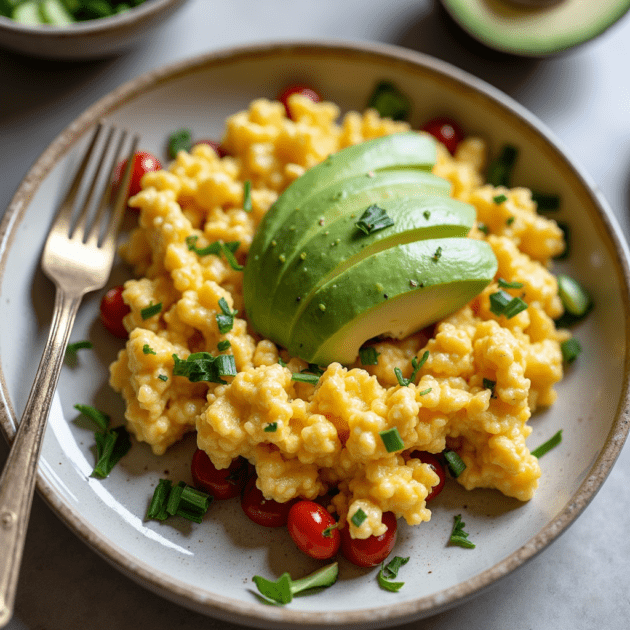
Cottage Cheese and Eggs: The Ultimate High-Protein Breakfast Duo
Ingredients
Method
- Whisk the eggs – In a mixing bowl, whisk the eggs until fully combined. Stir in the cottage cheese, salt, black pepper, and any optional seasonings.
- Preheat the pan – Heat a non-stick skillet over medium-low heat and add the butter or olive oil.
- Cook the eggs – Pour the egg mixture into the pan. Let it sit for a few seconds before gently stirring with a spatula.
- Scramble gently – Stir occasionally, allowing the eggs to cook slowly and develop a soft, creamy texture.
- Add extras (if using) – If adding spinach or shredded cheese, mix them in when the eggs are halfway cooked.
- Remove from heat – Once the eggs are fully cooked but still slightly soft, remove them from the heat.
Nutrition
Notes
- For fluffier eggs, cook on low heat and stir gently to prevent overcooking.
- Make it dairy-free by replacing cottage cheese with unsweetened almond yogurt or omitting it entirely.
- Add more protein by mixing in diced turkey, ham, or smoked salmon.
- Customize with veggies like mushrooms, tomatoes, or bell peppers for extra nutrients.
- Store leftovers in an airtight container in the fridge for up to 2 days. Reheat gently over low heat.


